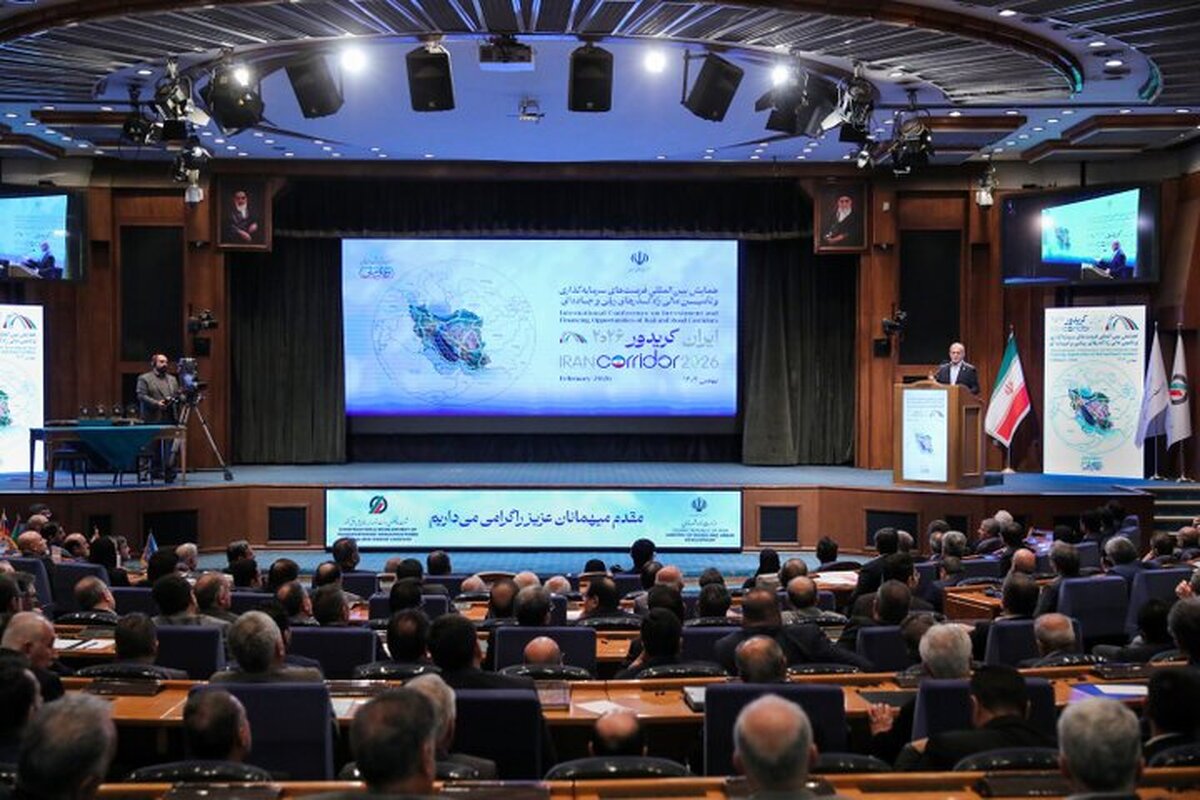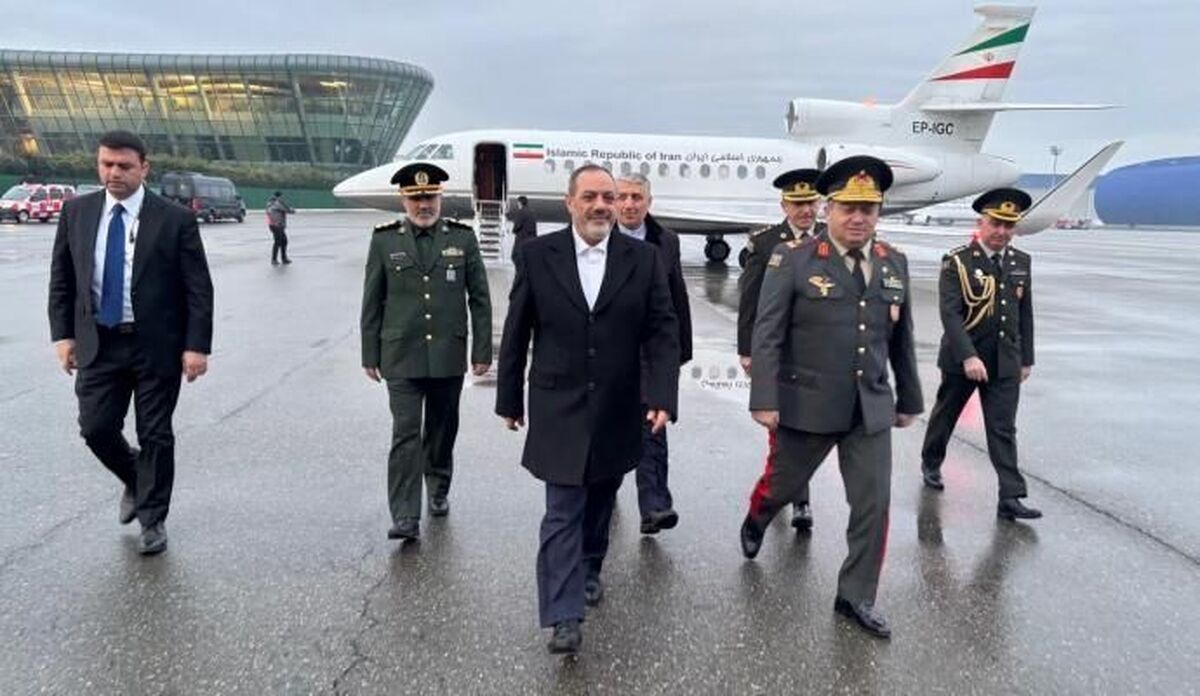
Iran Mulls Over Alternatives to Azerbaijan’s Transit Corridor
EghtesadOnline: Deputy Minister of Roads and Urban Development Kheirollah Khademi visited Armenia on Monday to discuss options regarding Iran’s participation in the completion of Tatev Project in the neighboring country.
Armenia’s Tatev Road is considered an alternative route for Iranian transit trucks crossing into Russia and Europe, IRNA reported.
Azerbaijan claims owning less than 20 kilometers of the 400-kilometer route from Norduz border crossing to Yerevan.
Last month, Azerbaijani forces blocked part of the land route for a few days and imposed heavy tolls on Iranian trucks carrying goods to Armenia.
Azerbaijani officers on Sept. 12 began stopping and taxing Iranian trucks delivering goods to and from Armenia. Many truck drivers have refused to pay the “road tax” reportedly ranging from $150 to $350 per vehicle, Azatutyun.am reported.
Two of them were arrested by Azerbaijani authorities for allegedly travelling to Nagorno-Karabakh without Baku’s permission. The Iranian Foreign Ministry called for their immediate release at the weekend.
The completion of Tatev Road would help Iranian truckers bypass Azerbaijan on their way to Armenia, Russia and Europe.
Iran is also preparing to bypass Azerbaijan with more direct sea routes. “The destination of trucks carrying export goods is mainly Russia; a small number of trucks have Armenia and Azerbaijan as their final destinations. Given the problems created by Azerbaijan for Iranian trucks, the best-case scenario would be that all Iranian trucks reach Russia or Armenia directly by sea,” said the director general of Gilan Ports and Maritime Organization, Hamidreza Abaei.
“The availability of infrastructures is crucial when it comes to maritime transport. Ports must have adequate infrastructure to handle roll-on/roll-off vessels [cargo ships designed to carry wheeled cargo]. Bandar Anzali has managed to accommodate 12 Ro-Ro vessels but we failed to build inter-organizational coordination in handling trucks carrying goods to the Commonwealth of Independent States, such as Russia and Kazakhstan, and even Uzbekistan and Kyrgyzstan,” he was quoted as saying by ILNA.
Noting that besides Bandar Anzali, Astara Port will soon be ready to handle Ro-Ro vessels, the official said, “Accepting a ship to carry cargo trucks to Russia requires dredging and creating the right depth, but the more important issue is scheduling, meaning that the duration of the truck stays at ports and the arrival and departure of vessels must be specified. That is only possible when all organizations, including the Headquarters to Combat Smuggling of Goods and Foreign Exchange, the Islamic Republic of Iran Customs Administration and the Institute of Standards and Industrial Research of Iran, work in unison to set a specific timeline for trucks and vessels’ stays at ports.”
Iran is concerned about problems related to the use of infrastructure linking Armenia to Iran, Iran’s Ambassador Abbas Badakhshan Zohouri said in a meeting with Armenia’s Security Council Secretary Armen Grigoryan.
Grigoryan said Armenia realizes the sensitivity of the issue for the Iranian partners and attaches importance to the speedy settlement of the issue, Public Radio of Armenia reported recently.
“The Iranian side, including the embassy, is making efforts to have this issue resolved as soon as possible,” Zohouri said.
He stressed that Tehran hopes the Armenian government will speed up the ongoing reconstruction of an alternative Syunik Road “so that Iranian drivers can transport cargo in safe and secure conditions”.
Hervic Yarijanian, the head of Iran-Armenia Chamber of Commerce, says Azerbaijan is trying to damage Tehran-Yerevan trade, which would also hit Iran’s trade with the Eurasian Economic Union.
“Based on the Iran-EEU preferential trade agreement, Iran’s observer status period has ended and we now have to be on the way to becoming a permanent member. Here, the volume of economic interactions between Iran and EEU five member countries is of great significance. Yet, the Azerbaijan government’s new measure is blocking the easy flow of commodities between Iran and Armenia,” he was quoted as saying by ILNA.
The official complained that the new policy to charge Iranian trucks headed to Armenia aims to hamper the entry of Iranian goods into the neighboring country and increase their end prices, robbing Iran’s products of their competitive edge.
“By creating delays for Iranian commodities in entering the Armenian market, a void will be created which will, no doubt, soon be filled with products from other rival countries,” he added.
Noting that Armenia invited Iran to join the Eurasian bloc in the first place, Yarijanian said the country played an important role in changing Iran’s status from an observer member to a permanent one.
“Once this comes about, our trade with EEU members, Armenia in particular, is estimated to experience a hike. Seeing this coming, some regional states are not exactly happy,” he added.
The official noted that prior to the impediment caused by Azerbaijan, Iran-Armenia trade was gradually gaining momentum and Iranian goods were finding footholds in this neighboring market.
“Iranian businesses have tried hard and spent a lot to find their way into the Armenian market over the years which, given the new state of events created by Azerbaijan, could all go to waste,” he said.
“We ask the Iranian government to intervene through diplomatic methods to remove this hurdle to keep Tehran-Yerevan trade on its growing path.”




